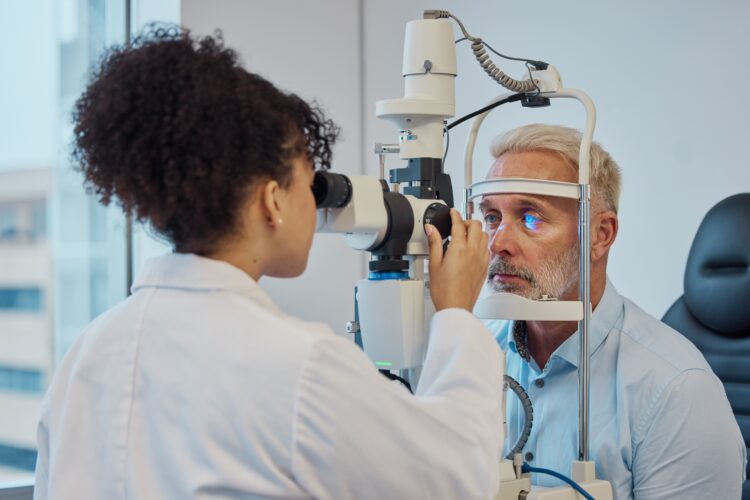Posted by: Clemson Eye in Eye Health, Eye Safety

Our eyes are one of the most vital yet vulnerable parts of our body and protecting them should be a top priority. Whether you’re at work, playing sports, or even performing everyday tasks, taking steps to safeguard your eyes can prevent injury and maintain your vision for life. Here’s why eye safety is crucial and how you can protect your eyes in various situations.
Why Eye Safety Matters
Every year, thousands of people suffer from eye injuries that could have been prevented with proper protection. Eye injuries can lead to long-term vision problems, discomfort, or even blindness. Whether caused by accidents at home, in the workplace, or during recreational activities, these injuries underscore the importance of taking eye safety seriously.
Simple Steps for Eye Protection
1. Wear Protective Eyewear
Whether you’re at work, playing sports, or doing home repairs, always wear appropriate protective eyewear. Safety glasses, goggles, and helmets with face shields are designed to protect your eyes from potential hazards like flying debris, chemicals, or impact.
2. Practice Safe Habits at Work
In workplaces where eye injuries are a risk, such as construction sites or labs, follow all safety protocols and use protective equipment as required. Employers should provide the necessary safety gear and training to ensure a safe working environment.
3. Be Cautious with Chemicals
When using cleaning products, pesticides, or other chemicals, make sure to read the labels and use protective eyewear. Avoid touching your eyes when handling chemicals and wash your hands thoroughly afterward.
4. Protect Your Eyes from UV Rays
Prolonged exposure to the sun’s ultraviolet (UV) rays can damage your eyes. Always wear sunglasses that block 100% of UVA and UVB rays, even on cloudy days. Wide-brimmed hats can also provide additional protection.
5. Use Eye Protection During Sports
High-impact sports like basketball, racquetball, or soccer can put your eyes at risk. Invest in sports goggles that are designed to protect against impact and prevent injuries.
6. Maintain Eye Health
Regular eye exams are essential for detecting any early signs of eye conditions and ensuring your vision remains sharp. Your eye doctor can also provide guidance on specific protective measures based on your lifestyle and activities.
Conclusion
Eye safety is essential for preserving your vision and preventing unnecessary injuries. By wearing protective eyewear, following safety guidelines, and being mindful of potential hazards, you can safeguard your eyes and enjoy a lifetime of clear vision. Remember, your eyes are irreplaceable—prioritize their safety every day.
If you have any concerns about your eye health or need advice on protective eyewear, consult with an eye care professional who can guide you in taking the right steps to protect your vision.